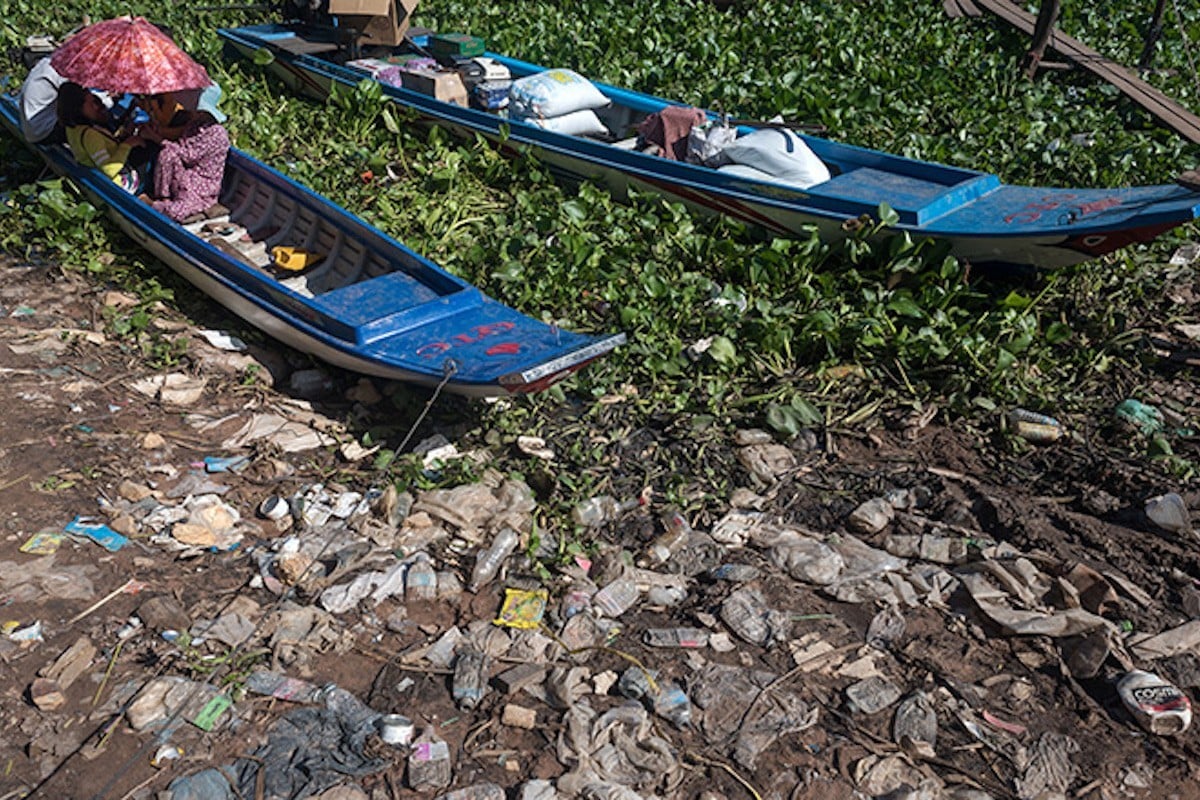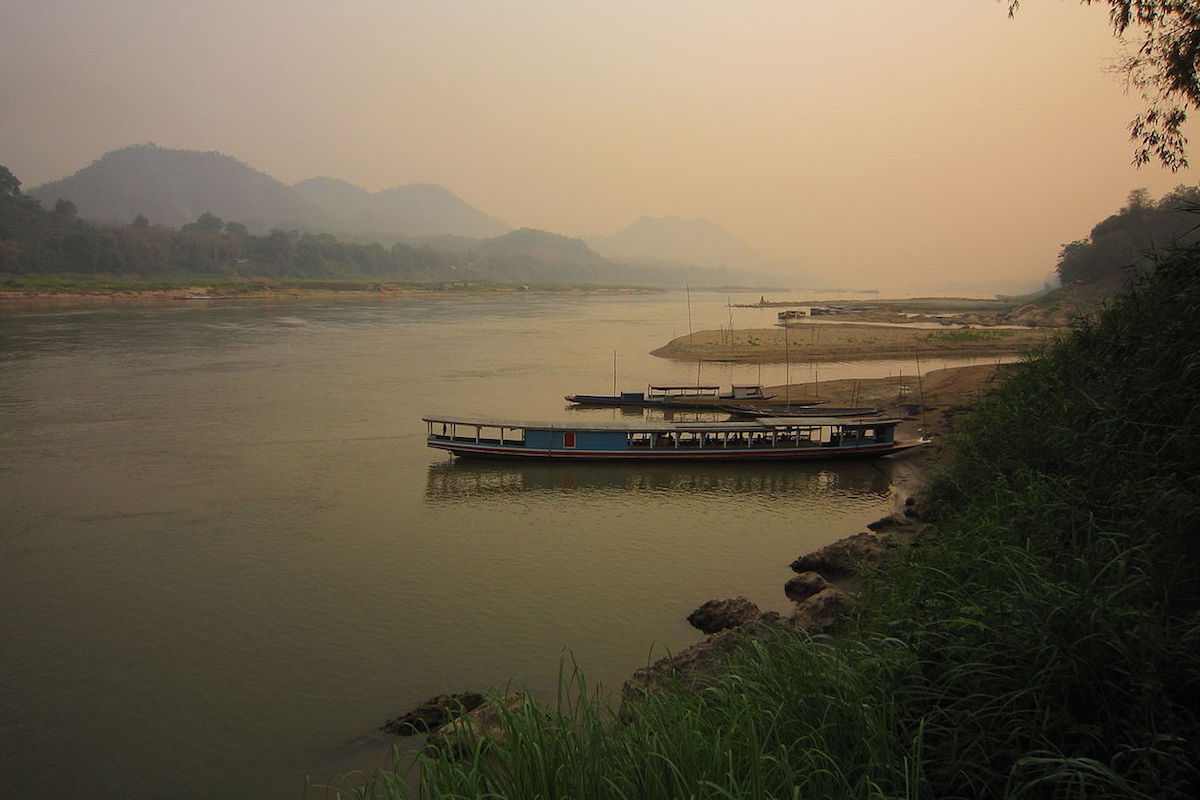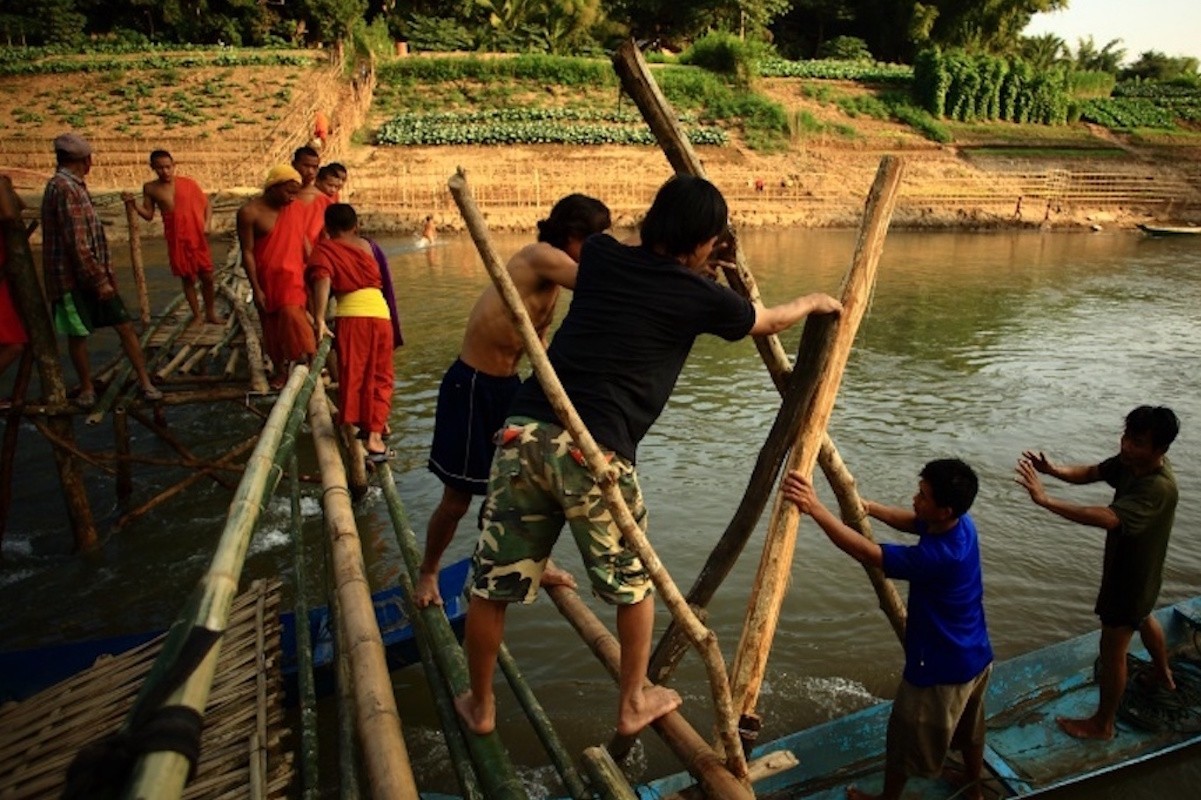In January researchers identified the Mekong as one of ten rivers that collectively discharge 95 percent of the plastics strangling the world’s oceans. Also, the Mekong countries of China, Thailand, and Vietnam are among five countries in the world (Indonesia and the Philippines are the other two) that collectively dump more plastic into the oceans than the rest of the world combined.
Plastic-fed lifestyles are proliferating across the Mekong neighborhood. An estimated 200 tonnes of plastic waste is being dumped into Myanmar’s waterways every day. Cambodian households use ten times more plastic than their counterparts in more developed economies, and plastic has become a challenge to increasingly prosperous Laos.
And if managing their own waste was not enough, Thailand and Vietnam now find themselves burdened with unwanted, and apparently unmanageable, plastic waste imports in the wake of China’s recent ban on taking in other countries’ refuse.
Nothing has illustrated the challenges more graphically than the global circulation of images of the death of a pilot whale in Southern Thailand last week due to consuming some 80 plastic bags. This followed widespread coverage of the closure of Maya Bay, one Thailand’s most popular tourist beaches, and massive clean-up of others, due to plastic waste accumulation.
No doubt, this is a regional crisis fueling a mounting global marine catastrophe, but where is the basin’s regional leadership?
The Mekong River Commission put out a statement Friday about new paper-free office policies, and a commitment to reduce administrative plastic consumption. And the Mekong Tourism Coordinating Office, an outgrowth of the Asian Development Bank’s US$66 billion Greater Mekong Subregion initiative announced, “…a platform for those who feel passionate about the need to reduce the use of plastic in tourism.”
While clearly acknowledging the theme of tomorrow’s World Environment Day and the almost daily headlines plastic waste is garnering in the Mekong region, such responses by these regional coordinating bodies hardly comports with the epidemic at hand.
For its part, the Association of Southeast Asian Nations (ASEAN) acknowledged the issue last November, putting on a conference entitled Marine Debris in ASEAN Region.
“It’s clear now that this region is probably the single largest contributor of plastic litter into the marine environment in the world, which means that if we want to solve the marine litter problem as a global challenge, we have to solve it in this region,” said Jerker Tamelander, the head of the United Nations Environment Programme’s Coral Reef Unit in a statement about the meeting.





